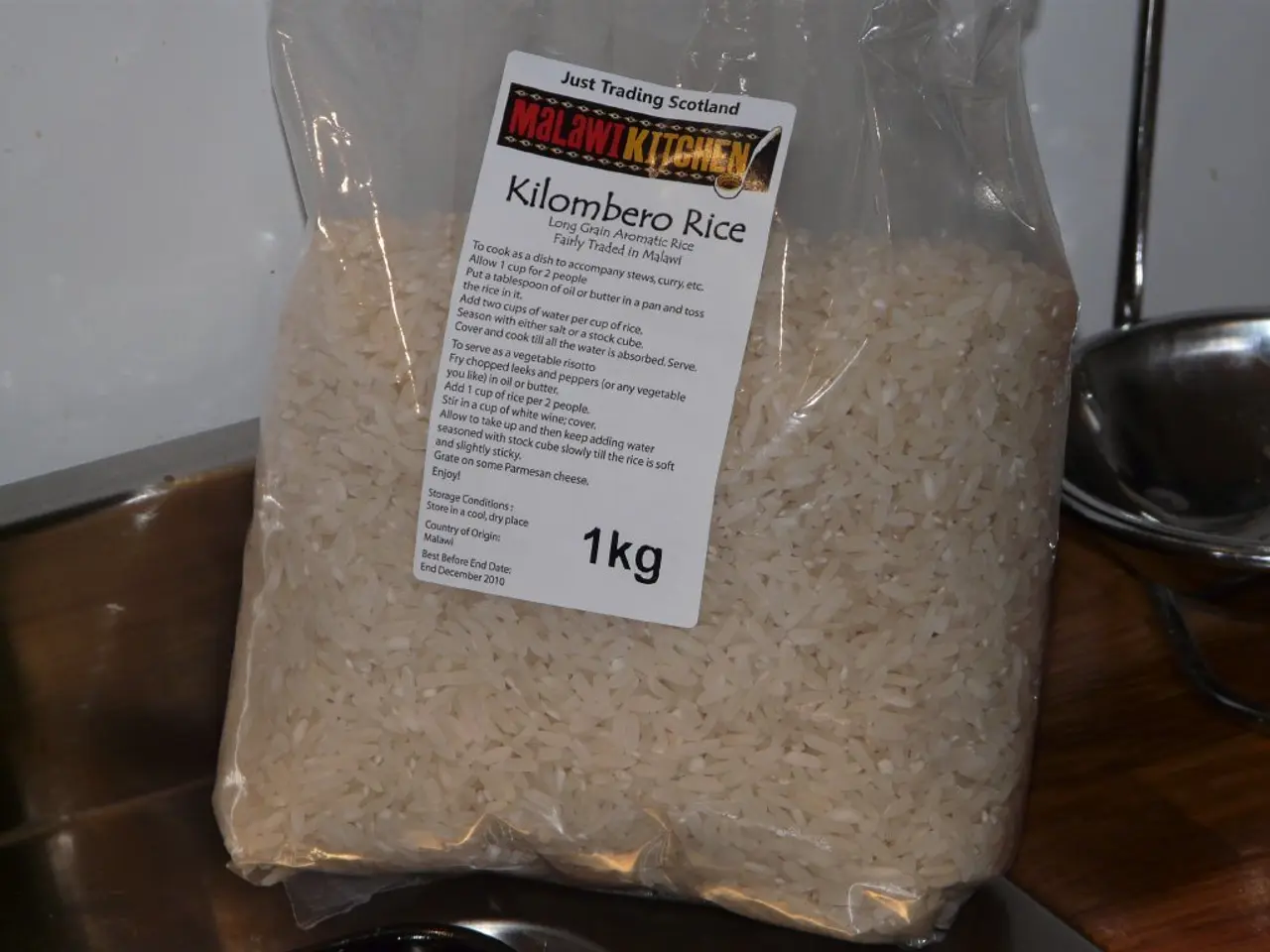International Representatives from Bayer Crop Science Tour IRRI South Asia Regional Centre to Fortify Agricultural Sustainability Collaborations
Five high-ranking reps from Bayer Crop Science, including Federico Vartorelli and Hema Reddy HB, paid a visit to the International Rice Research Institute (IRRI) South Asia Regional Centre (ISARC) in Varanasi on June 4, 2025. The primary objectives of this meeting revolved around discussing the progress of collaborative ventures in rice research and development, emphasizing direct-seeded rice (DSR), hybrid rice, and the implementation of IRRI's DSR-compatible rice varieties.
Welcomed by the director of ISARC, Dr. Sudhanshu Singh, and his team of program leaders and scientists, the group embarked on a comprehensive day-long visit that encompassed an in-depth orientation and guided tour of ISARC's advanced research and training facilities. Key discussion points highlighted cornerstone innovations in varietal development and seed systems, mechanization, digital tools, and capacity-building initiatives.
The Bayer team exhibited great eagerness in examining strategies to bolster the popularity of hybrid rice in India, especially focusing on critical challenges such as seed availability, affordability, farmer acceptance, DSR compatibility, and consumer expectations regarding grain quality.
Notably, during an interactive dialogue, Federico Vartorelli drew parallels between India and the global experiences associated with hybrid adoption. Referencing Argentina's journey in hybrid corn, he underscored the crucial role of behavioral transformations in overcoming barriers to the widespread adoption of hybrid crops. "In many countries, including Argentina," he emphasized, "behavioral adjustments played a crucial part in overcoming obstacles to hybrid crop adoption."
He also discussed the influence of urbanization on food preferences, stating, "As new generations settle in urban areas, dietary habits evolve. Hybrid rice holds the potential to meet the escalating demands for grain quality and palatability in urban markets." The Bayer team showed keen interest in IRRI's ongoing hybrid rice breeding projects, as well as efforts to enhance value addition.
Finally, the meeting concluded with a strategic discussion touching upon strengthening public-private partnerships for farmer-centric solutions. Both IRRI and Bayer affirmed their commitment to collaborative innovation aimed at furthering climate resilience, food security, and rural prosperity.
Hybrid rice adoption in India involves a multi-faceted dance of challenges, solutions, and continuous research efforts focused on boosting productivity, climate resilience, and enhancing farmer livelihoods.
Challenges in Hybrid Rice Adoption:
- Subpar productivity or stagnation in certain regions due to inadequate investments in high-quality hybrid seeds. Although hybrid seed technology has increased crop yields, production remains deficient in numerous areas.
- Environmental concerns related to soil degradation, groundwater depletion, and pesticide resistance, caused by the widespread adoption of high-yield varieties, raise significant concerns for the sustainability of hybrid rice cultivation.
- Change in food preferences and urbanization create a need for grain quality and palatability that hybrid rice varieties should meet to secure consumer acceptance and market penetration.
- Mechanization deficiencies and labor scarcity in small-scale farming systems hamper the efficient cultivation and management of hybrid rice, limiting potential yield increment.
Solutions in the Works:
- Government backing and policy adjustments to promote hybrid seed adoption among farmers while ensuring the availability of quality seeds.
- Research and development initiatives concentrating on developing climate-resilient hybrid rice varieties that can endure stress conditions such as drought, heat, and flooding, led by institutions like IRRI and private companies like Bayer Crop Science.
- Public-private partnerships that pair resources and expertise to spawn innovations designed for farmers and value addition in hybrid rice production.
- Farm mechanization and technology integration, including AI and robotics, to propel productivity, reduce labor drudgery, and improve the sustainability of rice farming.
Ongoing Research Projects:
- The International Rice Research Institute (IRRI) South Asia Regional Centre is immersed in hybrid rice breeding programs focusing on climate resilience and grain quality improvements.
- Increasing investments in hybrid rice seed technology research by domestic and multinational seed corporations aim at boosting crop yields and adapting hybrid strains to Indian climate conditions.
- Efforts target the tailoring of hybrid varieties to evolving consumer preferences and urban market demands, ensuring that hybrid rice types cater to requirements beyond yield alone, including taste and culinary factors.
The Bayer team is actively seeking solutions to overcome challenges in hybrid rice adoption in India, such as subpar productivity in certain regions, environmental concerns, changes in food preferences due to urbanization, and mechanization deficiencies in small-scale farming systems. They have shown keen interest in IRRI's ongoing hybrid rice breeding projects and efforts to tailor hybrid varieties to Indian climate conditions and urban market demands.
One strategy to promote hybrid seed adoption among farmers is through government backing and policy adjustments. Research and development initiatives, like those led by institutions such as IRRI and private companies like Bayer Crop Science, are concentrating on developing climate-resilient hybrid rice varieties, as well as adapting hybrids to Indian climate conditions.
Public-private partnerships are being cultivated to pair resources and expertise, spawning innovations designed for farmers and value addition in hybrid rice production. Integration of farm mechanization and technology, including AI and robotics, is proposed to propel productivity, reduce labor drudgery, and improve the sustainability of rice farming.
Domestic and multinational seed corporations are increasing investments in hybrid rice seed technology research to boost crop yields. The International Rice Research Institute (IRRI) South Asia Regional Centre is deeply engaged in this work, focusing on climate resilience and grain quality improvements. Additionally, efforts are being made to tailor hybrid varieties to evolving consumer preferences and urban market demands, ensuring that hybrid rice types cater to requirements beyond yield alone, including taste and culinary factors.





